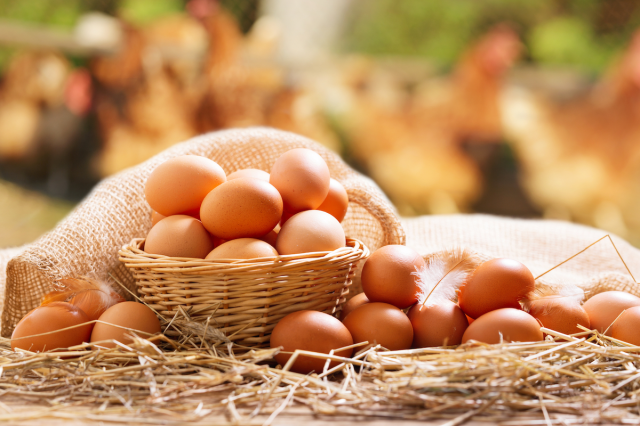
At this time last year, a dozen of eggs rose to Rs 150 for the first time. At that time of the year, a new record has been set for the price of eggs. The price of a dozen eggs in the market has reached 160 rupees. The egg supply is a bit tight. Many believe that this instability is due to the activation of old cycles.
This image was found yesterday Tuesday while visiting Malibagh and Moghbazar in the capital and talking to businessmen. In the market now, per dozen, farm chicken brown eggs are selling at 155 to 160 taka. 155 taka dozen eggs are small in size. A dozen of duck and country chicken eggs are being sold between Tk 200 and Tk 210. There is no change in the price of these two types of eggs. An egg seller at Malibagh market that one egg from the farm’s chicken has to be bought wholesale for more than 12 rupees. Even if sold at a small profit, the price per dozen exceeds 150 rupees. Many of these eggs break. If the retail price is below 160 rupees per dozen, there is a loss.
In the market now, per dozen, farm chicken brown eggs are selling at 155 to 160 taka. 155 taka dozen eggs are small in size. A dozen of duck and country chicken eggs are being sold between Tk 200 and Tk 210. There is no change in the price of these two types of eggs.
White eggs cost a little less than brown eggs.
Now the price of eggs for two positions has become equal. The price of each brown egg is around 13 rupees. According to the government agency Trading Corporation of Bangladesh (TCB), the price of eggs in the Dhaka market has increased by 7 percent in the last one week. A week ago eggs were selling at 48 to 50 taka, now they are selling at 50 to 55 taka.
Wholesale and retail egg sellers say that the supply of eggs in the market has decreased slightly. And at such a time, a class of unscrupulous traders is making the market unstable. Many have also complained that the wholesalers are increasing the commission to take advantage of the crisis.
President of Bangladesh Egg Producers Association Taher Ahmed Siddiqui told that there is no major shortage of eggs in the market. Demand has increased slightly
And because the wholesalers have increased the commission, the price of eggs is falling.
Farmers and traders said that people have never had to buy eggs at such a high price in the country before. They say that the price of eggs increased abnormally in 2009 and 2010. The reason was bird flu.
Data from the Bangladesh Bureau of Statistics (BBS) show that in 2008-09 and 2009-10, the country’s average price for chicken eggs was roughly Tk 27. Last August, the new record price was 50 taka per hali. In this, the price of an egg is over 12 and a half taka. Later, the price increased a little more.
When egg prices hit record highs last year, poultry feed prices were high in the market.
Now food prices have come down a bit. However, a section of businessmen are blaming the increase in the price of food for the increase in the price of the market. However, in recent times, many people blame the cycle and corporate traders as the reason for the repeated fluctuations in the price of chicken and eggs.
Bangladesh Poultry Association President Sumon Hawladar told “When small farmers produce, the corporate-centered cycle keeps prices down. In such a situation marginal farmers cannot survive in production. As small farmers reduce production, this cycle drives up prices at will.
The updated information from the Directorate of Livestock says that the production in the country was 2 thousand 338 crores in the financial year 2022-23. It was 2 thousand 335 crores in the previous financial year. The demand is met with these poured into the country. In addition to normal, there are also nutritious eggs in the market. The price of these eggs is a little higher.
There is no good news in the market
In a shop in the Rampura market of the capital yesterday, local resident Md. Mustafa was buying rice. After bargaining for some time, he was able to buy 10 kg BR 28 rice at the rate of Tk 62 per kg. Then he was moving towards the vegetable market.
That’s when Md. Talk to Mustafa. He told the reporter of Prothom Alor that he earns Tk 200 per month as a daily wage worker. His father works as a security guard and earns a salary of Tk 10,000 to 12,000. Even so, it is difficult to run a family of six members. That’s why his wife recently started sewing. In view of the increase in the price of daily goods to handle the cost. Mustafa Pratham himself is now looking for an additional source of income.
The pressure on low-income people like day laborer Mustafa is only increasing. The price of all types of rice in the capital market has increased by Tk 2-3 per kg. The price of open flour has also increased by Tk 2-5 per kg. 5-10 taka extra per kg to buy large grain lentils. Apart from this, the prices of various daily commodities including oats, flour, soybean oil, palm oil, and garlic have increased in the last one week.